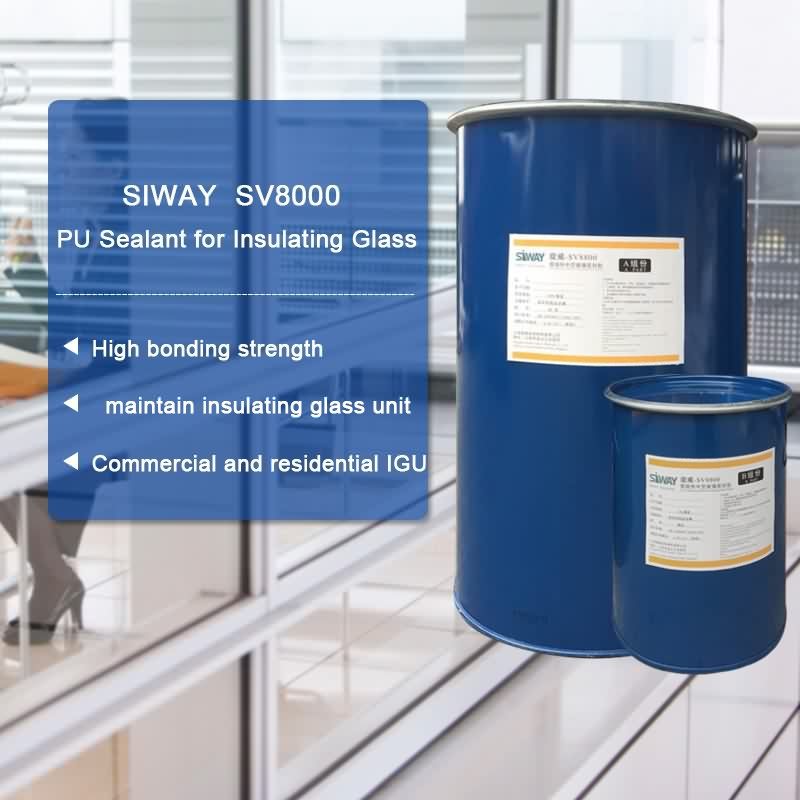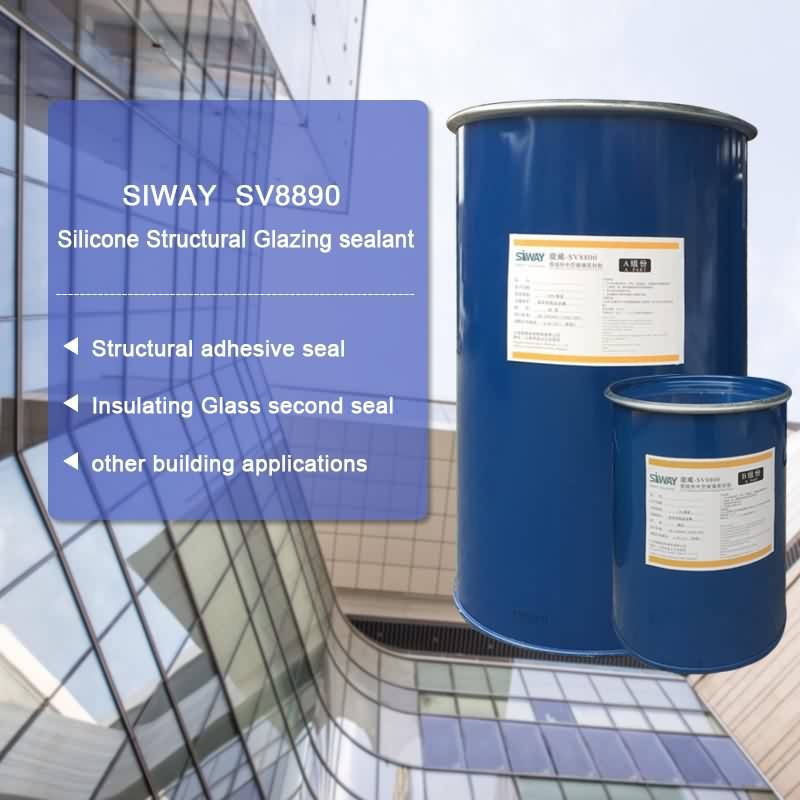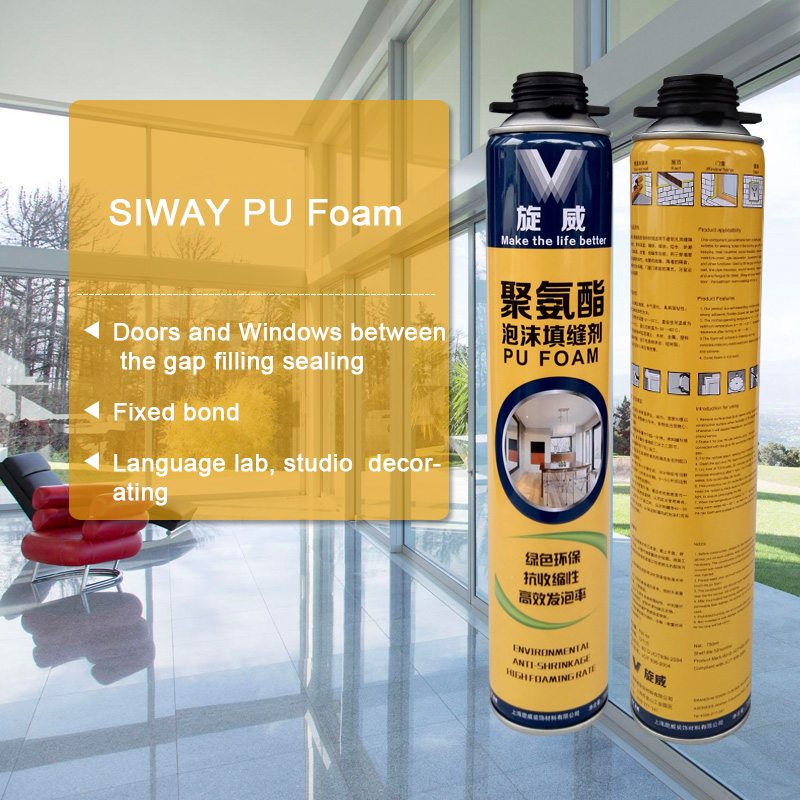18 Years Factory SV-8000 PU Sealant for Insulating Glass to Malawi Manufacturers
Short Description:
Description SV – 8000 two-component polyurethane insulating glass sealant is a neutral cure, mainly used for the insulating glass of the second seal. Product formulation to use its performance with high modulus, high strength, to meet the requirements of insulating glass assembly. Where to use It is a two-component PU sealant that offers variable work life with high bonding strength to maintain the integrity of insulating glass unit, suits both commercial and residential IGU. Key Fe...
It is our responsibility to meet your needs and efficiently serve you. Your satisfaction is our best reward. We are looking forward to your visit for joint growth for 18 Years Factory SV-8000 PU Sealant for Insulating Glass to Malawi Manufacturers, Our tenet is 'Reasonable prices, efficient production time and best service .' We hope to cooperate with more customers for mutual development and benefits.
Description
SV – 8000 two-component polyurethane insulating glass sealant is a neutral cure, mainly used for the insulating glass of the second seal. Product formulation to use its performance with high modulus, high strength, to meet the requirements of insulating glass assembly.
Where to use
It is a two-component PU sealant that offers variable work life with high bonding strength to maintain the integrity of insulating glass unit, suits both commercial and residential IGU.
Key Features
1. High Modulus
2. UV resistance
3. Low vapor and gas transmission
4. Primerless adhesion to coated glass
Technical data sheet
| Test project | standards | Value |
| Sagging degree (mm) | ≤3 | 0 |
| Operating time | ≥30 | 30 |
| Thermal weight loss(%) | ≤10 | 2 |
| Durometer Hardness Shore A | 20-80 | 42 |
| tensile propcrties(MPA) | >0.4 | 1.0 |
| Bond damage area(5%) | ≤5 | 0 |
Certification
GB-24266-2009;
Color
Component A(Base) – White, Component B(Catalyst)- Black
Package
1. Component A(Base): (190L), Component B(Catalyst) (18.5L)
2. Component A(Base):24.5kg (18L), Component B(Catalyst): 1.9kg (1.8L)
Shelf life
12 months
Note
If you want the TDS or MSDS or other details, please contact with our sales person.
Ash Industries, is another preferred American supplier of contract manufacturing services you will find only at a Design-2-Part trade show at https://www.d2p.com.
Ash shows you how to utilize thermoplastic injection molding, silicone molding or plastic injection molding.
Thermoplastic injection molding is a manufacturing process that creates fully functional parts by injecting plastic resin into a pre-made mold. Thermoplastic injection molding has several sub categories, such as rapid injection molding, which is best utilized in fine tuning prototypes prior to a product being given the go-ahead for production.
Developers utilize the thermoplastic injection molding process for many applications, as it can produce anything form car door panels to cell phone cases with good accuracy and surface finish. What’s more is that it’s the industry standard for producing plastic parts, so developers can be certain they’re putting out a quality product if they go this route in the development process.
Here’s a closer look at thermoplastic injection molding:
Thermoplastic injection molding consists of injecting a thermoplastic resin into an already crafted mold to create parts in the shape of the mold.
A mold is made based off a CAD file.Such molds are typically made from aluminum or steel. After the mold is created, the thermoplastic resin is injected into it and then left to cure and form the part. The material is first fed into a heated barrel before being launched into the mold to cold and cure. Following curing, the part is removed from the mold and the process starts over until the part run is completed.
Thermoplastic injection molding can be accomplished with just about any engineering-grade plastic resin. But that’s not even including more general resins. Engineering grade resins are typically utilized to create final prototypes before manufacturing, while general resins are used to craft early prototypes or parts of a product that are of lesser importance. General resins refer to the likes of ABS, nylon, PET, polypropylene, polyethylene and TPE. Engineering-grade resins consist of lexan, noryl, valox and ultem. The plethora of pastic resins that can be processed via thermoplastic injection molding allows product developers to experiment with different materials and surface finishes for their products.Thermoplastic injection molding can be implemented for prototyping, short-run and long-run manufacturing due to its speed, quality of finished parts and the variety of general and engineering-grade resins that parts can be produced.
Liquid injection molding, or LIM, or known as silicone molding is a production process commonly used to make parts that need to withstand extreme conditions, regardless of the industry.
While silicone molding is best used for short and long run part production, it can also be utilized in the final stages of the prototyping process as well, as the process permits engineers to experiment with different material configurations to fine tune the product before it is green-lit for production. Plus, since a mold needs to be created for the process to take effect, product developers can save time and money by using LIM for both final prototyping and production processes.
Military Robot rtv platinum cured silicone rubber Manufacturer
Platinum Silicone Rubber is generally named two-components silicone rubber, Part A is a flowable liquid, part B is the curing agent. It features an exceptional fluidity and good operability. The mixing ratio is 10:1, mainly be suitable for making FDA products.
Any more information abt food grade liquid silicone rubber, pls feel free to contact Ms Lydia: hyjd@szrl.net
whatsapp:0086 18988789546 skype: samuesilicone_1



